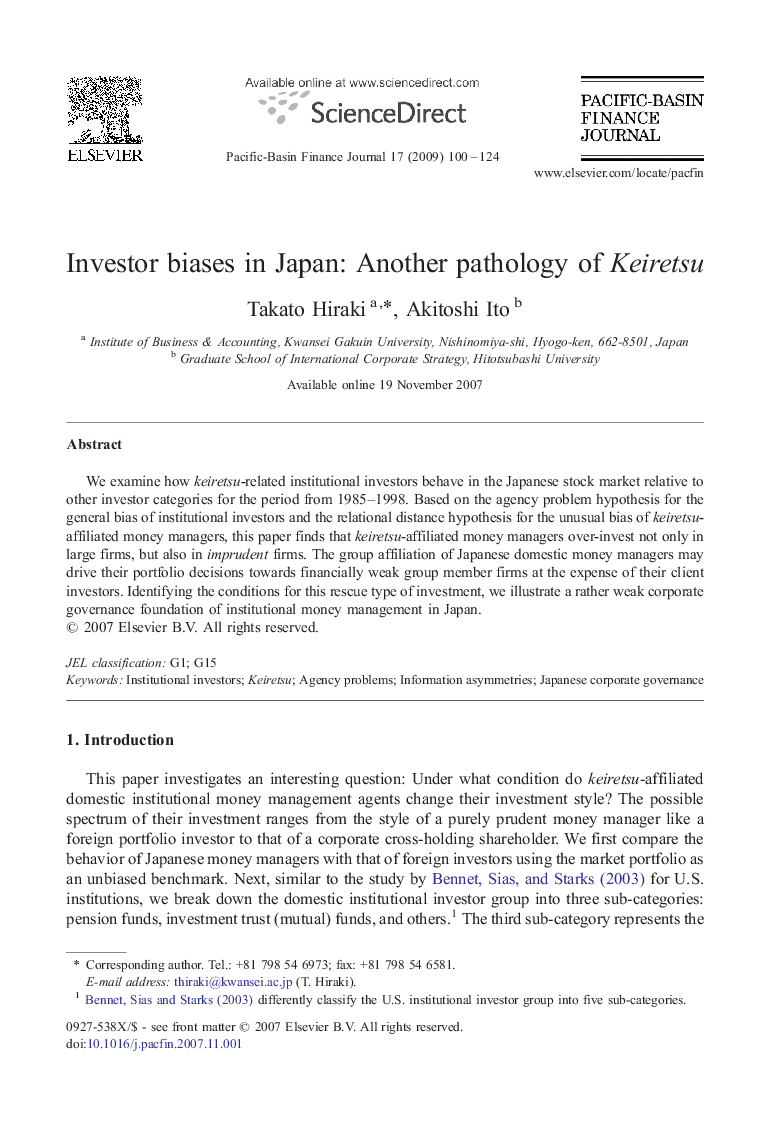| Article ID | Journal | Published Year | Pages | File Type |
|---|---|---|---|---|
| 976341 | Pacific-Basin Finance Journal | 2009 | 25 Pages |
We examine how keiretsu-related institutional investors behave in the Japanese stock market relative to other investor categories for the period from 1985–1998. Based on the agency problem hypothesis for the general bias of institutional investors and the relational distance hypothesis for the unusual bias of keiretsu-affiliated money managers, this paper finds that keiretsu-affiliated money managers over-invest not only in large firms, but also in imprudent firms. The group affiliation of Japanese domestic money managers may drive their portfolio decisions towards financially weak group member firms at the expense of their client investors. Identifying the conditions for this rescue type of investment, we illustrate a rather weak corporate governance foundation of institutional money management in Japan.
